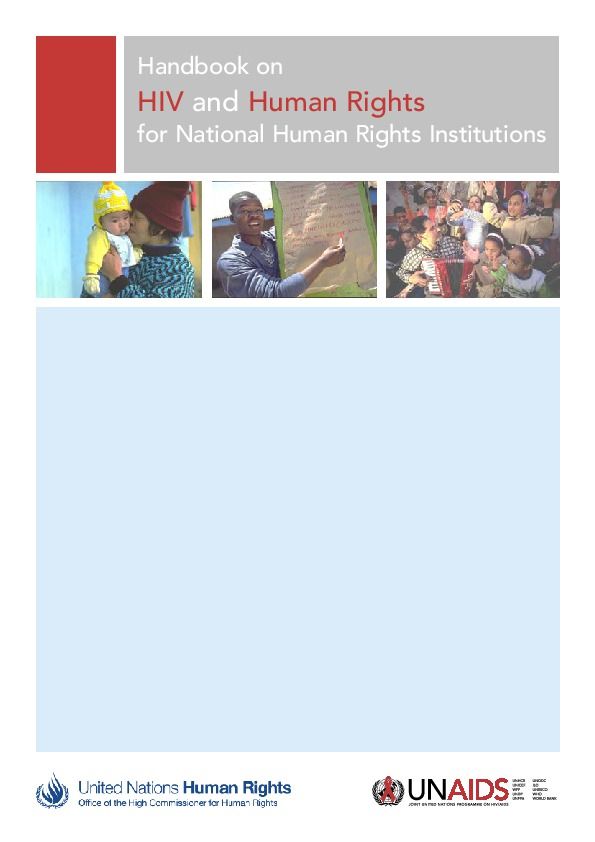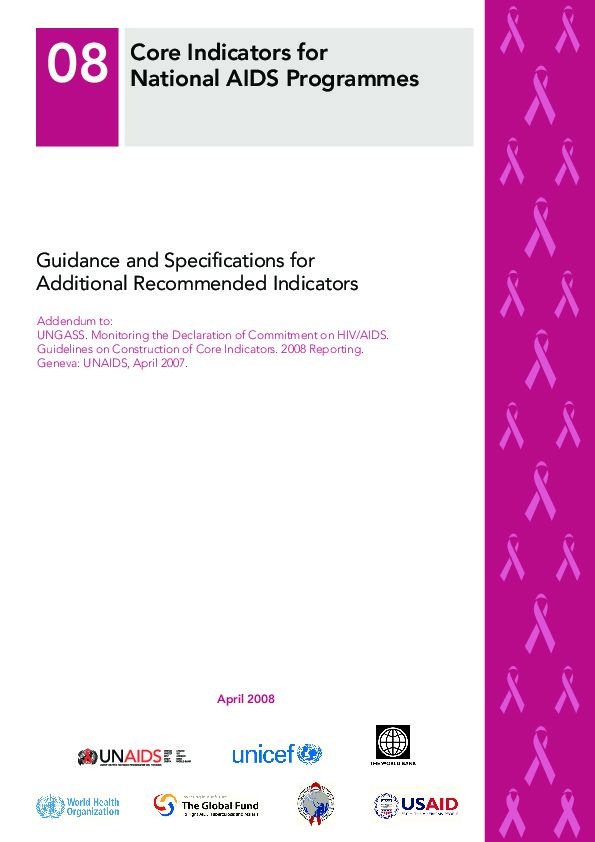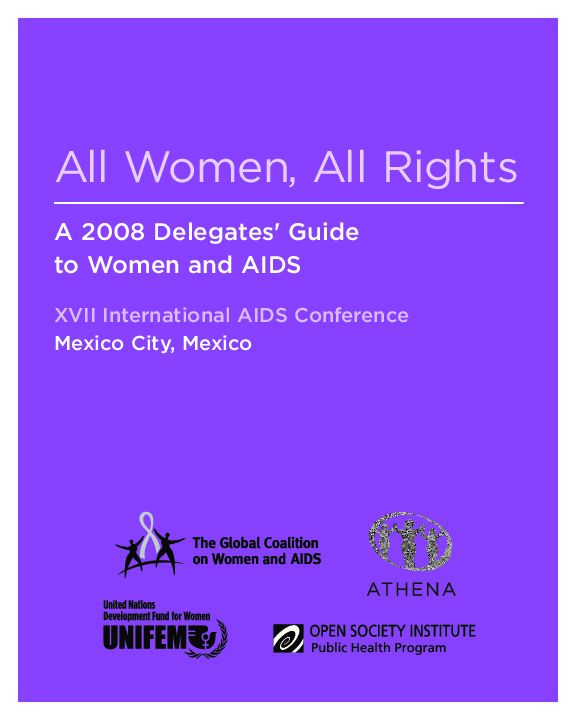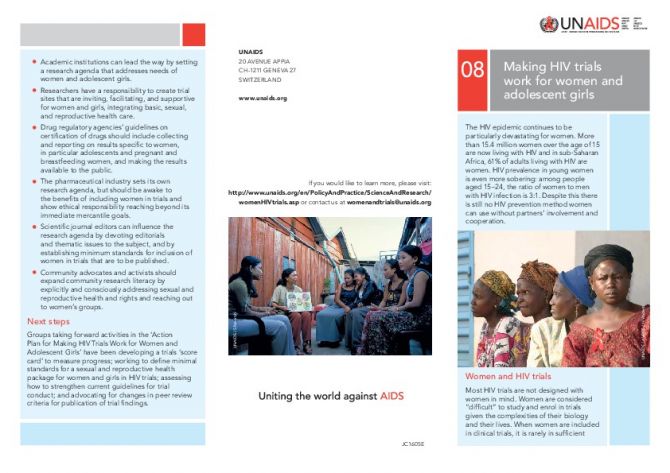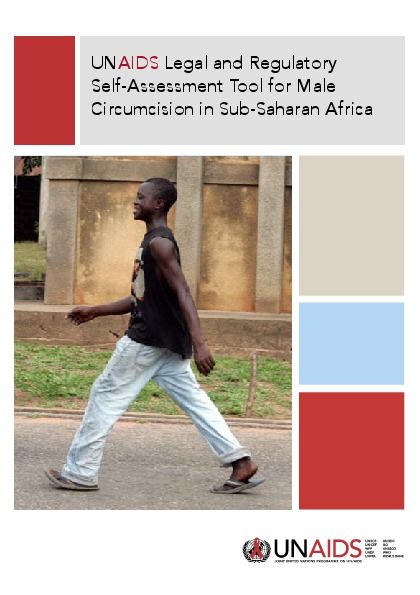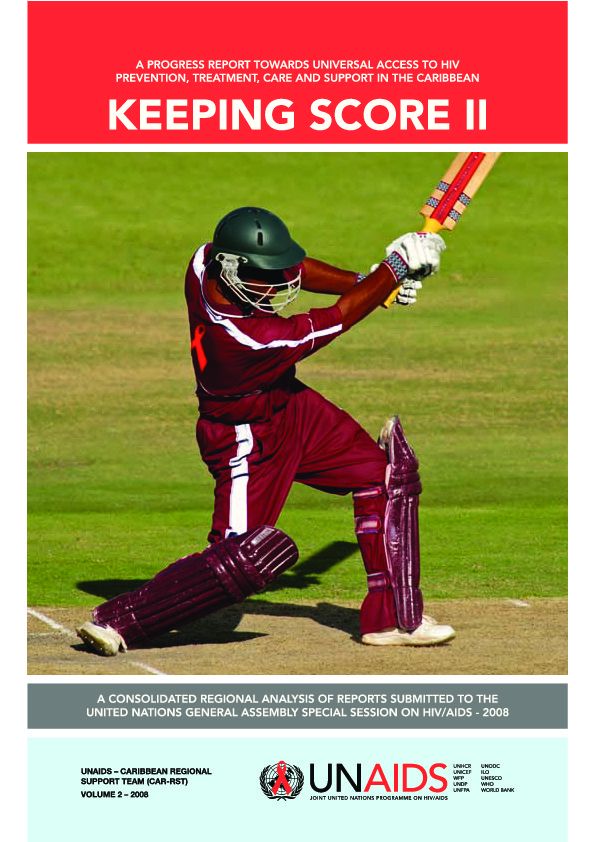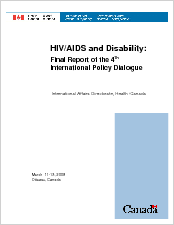Documents
Handbook on HIV and Human Rights for National Human Rights Institutions
10 August 2007
This Handbook is designed to assist national human rights institutions to integrate HIV into their mandate to protect and promote human rights. It provides a basic overview of the role of human rights in an effective response to the epidemic and suggests concrete activities that national institutions can carry out within their existing work. It also presents possibilities for engaging with the national HIV response in order to protect and promote human rights, in the context of the “Three Ones”.
Documents
Report of the UNAIDS Technical Consultation on Social Change Communication
17 December 2007
This document provides an overview of the discussions at the UNAIDS technical consultation on social change communication on 2–3 August 2007 at UNAIDS, Geneva. With 11,000 people being infected every day, HIV prevention is a global priority. UNAIDS Practical guidelines for intensifying HIV prevention urge countries to match prevention responses to their epidemics and stress the need to tackle the social drivers of the epidemic, such as gender inequality, HIV related stigma and discrimination and human rights abuses. The meeting explored the role of social change communication in achieving these ends through activities that are effective, measurable and can be taken to scale. A number of practical next steps and actions were identified and, building on the information generated at the meeting, guidance and technical support will be offered on social change communication for national AIDS programmes. A short paper on social change communication, describing the benefits and challenges of its application, will be developed. This will be followed by a high level briefing on social change communication and a technical update, which will explain what is meant by social change communication. It is hoped these documents will help UNAIDS country offices and national AIDS programme managers understand social change communication and enable them to promote it at the national level. They will be disseminated well before the 2008 UN General Assembly reporting.
Documents
Task Shifting - Global Recommendations and Guidelines
31 December 2007
‘Task shifting’ is the name given to a process of delegation whereby tasks are moved, where appropriate, to less specialized health workers. These recommendations and guidelines on task shifting, produced by WHO with the US President Emergency Plan For AIDS Relief (PEPFAR) and the Joint United Nations Programme on AIDS (UNAIDS), provide a framework that is informed by all we now know about the ways in which accessto health services can be extended to all people in a way that is effective and sustainable.
Documents
Global Tuberculosis Control 2008
17 March 2008
Annual report published by the World Health Organization (WHO) Global Tuberculosis Control 2008. This year's report shows that nearly 3/4 million people living with HIV fell ill with TB disease in 2006, confirming that TB is a major cause of illness and death in people living with HIV despite being mostly preventable and curable. Africa is yet again the most heavily affected continent, with 85% of the global burden of HIV-related TB.
Documents
Core Indicators for National AIDS Programmes - Guidance and Specifications for Additional Recommended Indicators
01 April 2008
The purpose of this document is to present the 40 core national indicators that provide minimum necessary information for national-level monitoring of the HIV epidemic and response, and to provide detailed specifications and guidance on the 15 indicators recommended in addition to the 25 UNGASS indicators.
Documents
2008 Delegates Guide to Women and AIDS: All Women, All Rights
24 July 2008
The guide to the women’s events and sessions in the Mexico Conference includes all sessions that address women’s issues directly or are organized by organizations serving women’s interests. These sessions will draw together lessons and conclusions from diverse expereinces across the globe. They will shed new knowledge and solidify what we already know – women must be front and center in the AIDS response.
Documents
Making HIV trials work for women and adolescent girls
28 August 2008
UNAIDS and other partners, including the Global Coalition on Women and AIDS, the International Center for Research on Women and Tibotec Inc., have come together to create a movement to ‘Make HIV Trials Work for Women and Adolescent Girls’. The movement has been established to review past participation of women and adolescent girls in clinical trials; to assess how well HIV trials are collecting, measuring, analysing and presenting data related to health determinants and health outcomes in women or adolescent girls; and to identify barriers to including women and adolescents in trials. An action plan, developed to address these concerns, is being implemented.
Documents
Legal and regulatory self-assessment tool for male circumcision in Sub-Saharan Africa.
19 November 2008
Documents
HIV/AIDS and Disability: Final Report of the 4th International Policy Dialogue
11 November 2009

